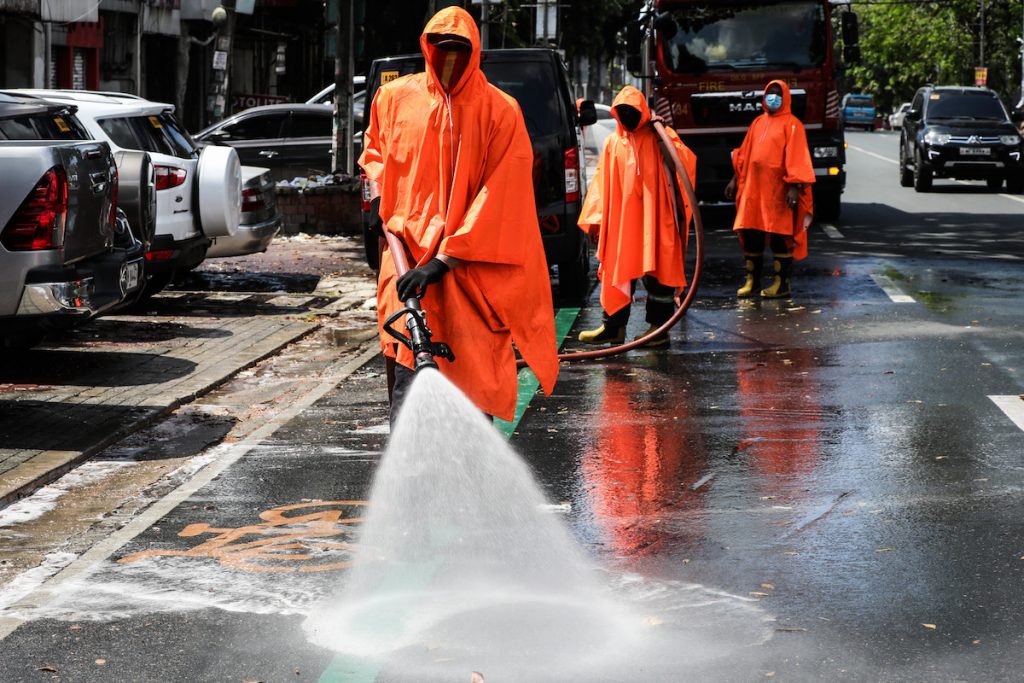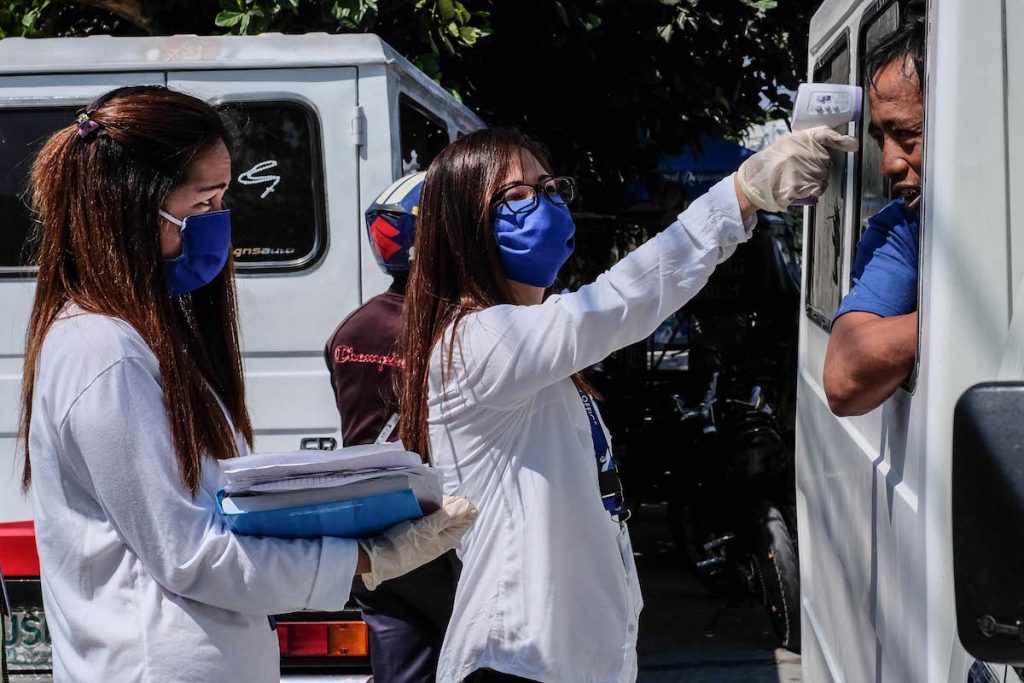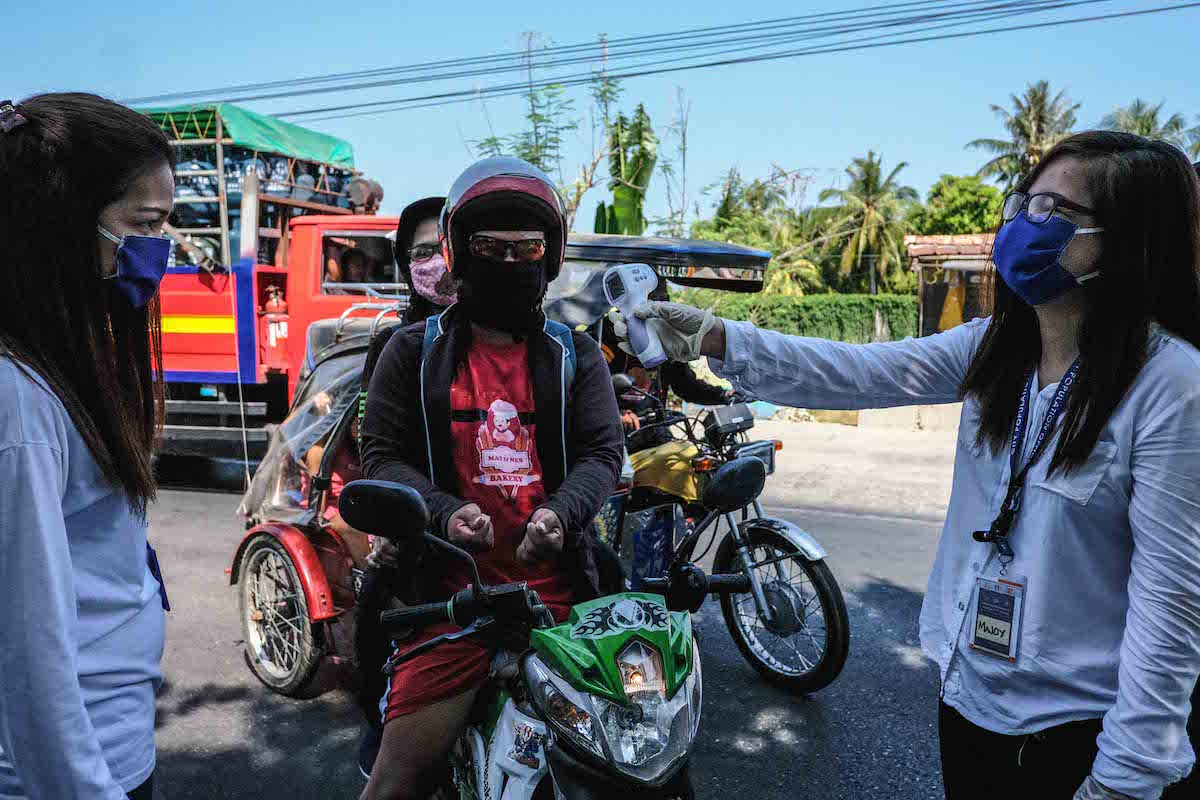Philippine quarantine regulations, public fear of the novel coronavirus contagion, anger over slow testing, and reports of favoritism have added to the burdens of a medical sector that has lost ten doctors, with dozens of other health professionals also infected.
On the surface, it seems irrational for people to turn on against those they depend to save their lives. But insecurity drives people into a panic, prompting dog-eat-dog survival instincts.
Maria Leonor Robredo, the country’s vice president, and church leaders have stepped in to provide shelter for health workers now treated as pariahs by the communities they serve.
Robredo’s office opened a dormitory in a commercial district in the national capital while the Manila Archdiocese shifted to hosting health workers in rectories, seminaries, and retreat homes.
Dioceses and Catholic schools across the country have already followed suit.
Leaving home
Medical personnel spent the last two weeks preparing their families for the day they get summons to treat patients with symptoms of the novel coronavirus.
Many have already stopped coming home.
Under health department protocols, health workers exposed to COVID-19 patients do not get tested until they, too, display symptoms of the disease that has already infected more than 700 people and killed 45 others in the country.
“We’ve said our hopefully temporary goodbyes,” said Ria, an anesthesiologist in a state hospital in the Visayas, the central cluster of Philippine islands.
Ria, who asked for non-disclosure of her family name, lives with two children, ages 12 and eight, and parents who are in their 70s, with health conditions that make them vulnerable to serious complications.
“They know that one day, I won’t be coming home,” said Ria. “We don’t know when that day will come. But it will come.”
Heroes sideswiped by quarantine
Aside from the urban poor on enforced work vacations sans benefits, medical professionals have suffered most from the fallout of contagion.
Many found themselves stranded when President Rodrigo Duterte announced a Metro Manila-wide lockdown on March 14, followed two days after by an “enhanced quarantine” for the entire main island of Luzon.
Private groups swiftly organized carpools for health workers. The government failed to provide alternatives to public transportation until days into the quarantine.
As cases swamped hospitals in the capital, citizens realized the extent of the state’s failure to provide for front-liners in a war it had expected.
Doctors staged tantrums to get diagnostic tests for seriously ill patients. The health department was slow to change the original protocol that prioritized people with travel histories to outbreak areas abroad or “known exposure” to people diagnosed with the virus.
Medical directors called out for physical protection equipment. Health Secretary Francisco Duque III said protective gear purchased by his agency would arrive only in April. Red tape and turf wars held up donations in customs warehouses.
The health department finally started delivery to government hospitals of 100,000 kits donated by China and the World Health Organization on March 25. These facilities are now taking over the treatment of COVID-19 patients as private hospitals buckle from the strain.

Fear and loathing
But challenges to health workers have erupted in communities.
Mayor Jerry Treñas of the central Philippine city Iloilo appealed last week to business establishments, transport operators, and owners of lodging homes to stop discriminating against hospital staff.
In Metro Manila, a senior officer of St. Luke’s Hospital, which has two branches with dozens of COVID-19 patients, appealed directly to church authorities to open facilities shuttered by the lockdown to health workers needing shelter.
Overnight, heroes hailed on social media found themselves pariahs on the ground.
Ria feels bad but understands how much of the insecurity stems from people’s fear that they would get little government help once infected.
“It’s the lack of testing that bothers everyone and makes us all look at neighbors with suspicion,” she said.
Many persons with mild symptoms of COVID-19 have been sent home, some to shanties in congested communities.
Limelight-hungry mayors with police escorts swoop down to check on them, place cordons or station guards around their home. They have also barred exit and entry to communities with two or more cases; one is enough in an urban poor village.
Yet there are no tests for neighbors with direct contact to “patients under investigation.” The government says it will only test people with serious symptoms.
On March 26, Health Secretary Duque told everyone to consider themselves “people under monitoring” and start home treatment for the first symptoms of the disease.
A senior health department consultant even called the WHO’s urgent advice to “test, test and test” as “criminal,” saying it was raising the public’s expectations.

Most citizens of a country where half of health costs come out of their pockets cannot afford to fall sick. Draconian lockdown measures have already eaten up their livelihood incomes. Hospitals are running out of beds. And so, people put up physical and emotional barricades.
Appeals are not going to help. Kindness and compassion can only go so far. Local governments need to ensure safe spaces for health workers while waiting for Duterte’s dysfunctional national administration to clean up its act.
By March 27, the military chief of staff, three senators, several legislators, and senior line agency officials had been announced as carriers or awaiting their test results.
That can only add to public demoralization over two legislators’ skirting quarantine, which has led to a total lockdown of the presidential complex.
State officials must step up and swiftly install the needed containment mechanisms for the general population. Duterte demanded and has received the green light to tap into the national budget. There are no excuses now.
The government should strictly enforce uniform quarantine rules and provide for the living needs of the poor and vulnerable.
It must step up the identification of potentially infectious persons by expanding access to tests. It must set up free, comfortable isolation facilities for suspected cases. And It must fund the hiring of additional health workers instead of relying simply on patriotic fervor.
Until then, a people unmoored will turn on each other.
Inday Espina-Varona is an award-winning journalist in the Philippines. She is a recipient of the “Prize for Independence” of the Reporters Without Borders in 2018. The views expressed in this article are the opinions of the author and do not necessarily reflect the editorial stance of LiCAS.news.







